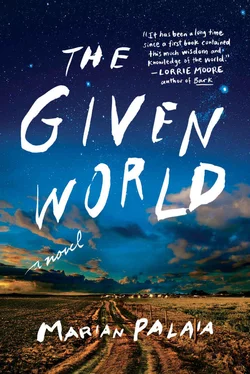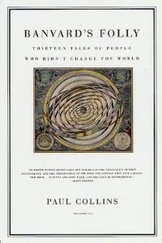God, I’m funny.
I dig in, maintain, decide I’m going to get my shit together. I see Frank. I don’t see him. He lets me do what I want and I don’t judge him for it. He says that’s good of me, and we laugh. Time, it goes by. It’s a process. I remember almost every day that makes up this time. One day a letter comes, from Gail, in Montana. I can’t place her and then I can, and it is just a flash: a seventeen-year-old love-stricken girl patting me on the head. Me growling, or something comparable. She says now she is forty, and she feels her life slipping away. She sends newspaper clippings that talk about Senate hearings, POWs, and MIAs.
A mismatched cadre of senators and congressmen are convinced the government has information about soldiers, still alive and held captive in Vietnam. I don’t know. For what? She tells me in the letter that they’ve created an office to collect information, inform families, keep track of these things. There are “family meetings” in different places around the country, where you can go and hear about the progress they’re making, the people they’ve found, all of them dead and in pieces.
There’s a meeting in Seattle next month. She wants to know if I want to meet her there. Yeah, right. Only if they bring Mick to it. Alive and whole.
I write back, say thank you for the information. She’s still in Montana, teaching in Great Falls. She sends a bracelet with some other guy’s name on it. MIA 1971. I send her a postcard of the Pacific Ocean, say, “This is where I am now. This is where I came to forget. I can’t help you. I can’t help either one of us.” I don’t tell her I recently went to jail for stabbing someone, though if I did, it might make her stop writing.
Against my better judgment, I go to the library and do more research. They are compiling a list of missing soldiers with descriptions of where they were last seen, what they were doing, what probably happened to them. Plane and helicopter crashes. Many drownings, which I did not expect. Hardly anyone went missing in the tunnels. Mick was always special that way. Not like the other dogs. He used to say that about Cash when Cash did something goofy, like collect rocks or bark at them. He probably didn’t think it applied to him, but it did. He was nothing like the other dogs.
I read about the tunnels, how the guys went in with nothing but a pistol, and the blade of a bayonet to check for booby traps. They had miners’ lamps, which made them perfect targets. But in Mick’s case, no one heard a shot, an explosion, a cry for help or of pain, nothing. He went in and he didn’t come out. At least not where they were waiting.
A few years later, when they were done with the Red River Delta and Hanoi, the B-52s headed south to carpet bomb Củ Chi, from where we’d been getting our butts kicked for a long time. Tết and all that. Mick was gone, somewhere, by then. Or he wasn’t, and became part of the carpet. Or maybe he’s in Saigon playing Russian roulette, waiting for Robert De Niro to come and take him back to the Smokies. Or the Rockies, their long-lost cousins to the west.
• • •
In spite of Gail and her letters, I’m being really good, getting a little cocky even, thinking, again, maybe I’ll go to college and get out of booze and babysitting. So, of course, some whacked-out patron I’ve cut off vaults the bar and knocks me down the basement stairs. To remind me not to be so goddamn sure of myself. Frank comes to collect me.
Something in me wants to slap his sweet face and so-nearly-contented loneliness. I don’t know if that’s what kind of girl I’ve become, but at least I know I don’t want it to be. He puts ice on the bruises and gives me brandy.
“For medicinal purposes,” he says. I smile because I know if I do, I can have anything I want. And what I want is to want this, to be here, trying the best I know how, to match love with something like it.
I can cook a few things, and do: spaghetti, tacos, pot roast. Most nights I come home after work. Sometimes I go ride with Frank in his truck and help with the papers. We finally make love in the back of the truck, on a pile of newspapers and a sleeping bag he keeps in there. My tailbone bruises, and the bruise feels like something real. I like it. I like Frank. Mostly I like seeing a single image of the world.
But this goddamn smile. It feels like it’s painted on. My skin feels like it’s painted on.
Gail won’t stop writing. It’s like she’s throwing bricks.
Something’s got to break. I guess when you get right down to it, something already has.
11. Two Days, Then the Bus to Cambodia
I hear that now you can fire Kalashnikov rounds for a dollar a shot out at Củ Chi, and they have widened and deepened the tunnels to accommodate Western bodies. Mick had the perfect build for tunneling, and he liked dark, enclosed places. I still can’t imagine, though, after the stories I’ve heard, how he went into those things. I have tried for years to tell myself it was lucky, in some alternative configuration, that he didn’t have to come home damaged and try somehow to fit in. I’ve known some of his compatriots, here and back in the States, and not a one of them is right in the head. They’re light-shy and twitchy, still startling at certain sounds, still having the bad dreams after so much time. The suicide rate for the tunnel rats is even higher than it is for the guys who got to shoot at other people, and get shot at, out in the open. Sometimes they take other folks with them when they go. Innocent bystanders, as if any of us is truly that.
Meantime, I drink and shoot pool and pretend that I am helping somehow, with the kids and with my students, though it really did not take me long to figure out it is not the Vietnamese who need help here.
When I feel myself approaching critical mass, I burrow in at the Rex with the Aussie, who works with the Vietnam Airlines guys out at Tân Sơn Nhất, training pilots and mechanics about airplanes in peacetime. These guys, he’s told me, know plenty about planes in wartime: their water buffalo drink from bomb craters turned lotus-choked ponds; their kids are born missing limbs, or with their limbs put on lopsided. By God. Every couple of months he gets a ten-day leave and goes off to Norway — to hike, to “veg out,” he says, unwind before he goes berko . When he leaves this time, one of his pals finally tells me, in as kind a way as possible, that the Aussie is in Norway because his drop-dead Norwegian model girlfriend has just had his child there, a boy, and he is pulling together the paperwork to get them permanent visas and bring them back to Saigon.
“So,” this pal tells me, “maybe you should forget about him now.”
“Done,” I say, though of course we both know that is a big, fat lie. I have not had time to forget. Give me some time.
“He should have told you.”
“Should have. Maybe he was going to when he got back.”
“Pigs fly,” he says.
I spend twenty precious dollars on a four-minute phone call to San Francisco, to my keeper, my tender, my friend — the one whose heart I took such lousy care of because I still had no business trying to operate mine, and because there was nothing dangerous or particularly fucked up about him. It has been over a year, so clearly he is surprised to hear from me, and he waits for me to tell him why I am calling. I listen to his breathing, watch the seconds go away on the pay phone at the post office. I am standing under a larger-than-life-size portrait of a smiling, radiant Ho Chi Minh, in what is officially, at least in name, his city. I say into the phone, “Do you miss me?” but I have not left enough time for an answer at the pace we are going. I want to be missed. MIA like my brother, but with the prospect of being found. Flags flown and torches carried. APBs out for my arrest. I don’t care how.
Читать дальше












